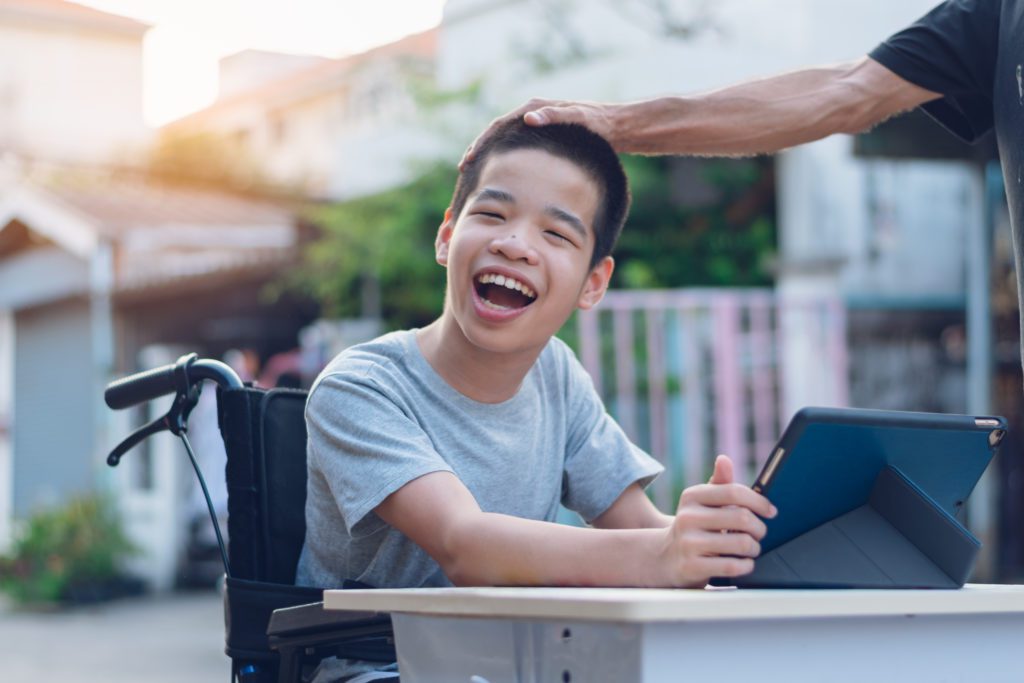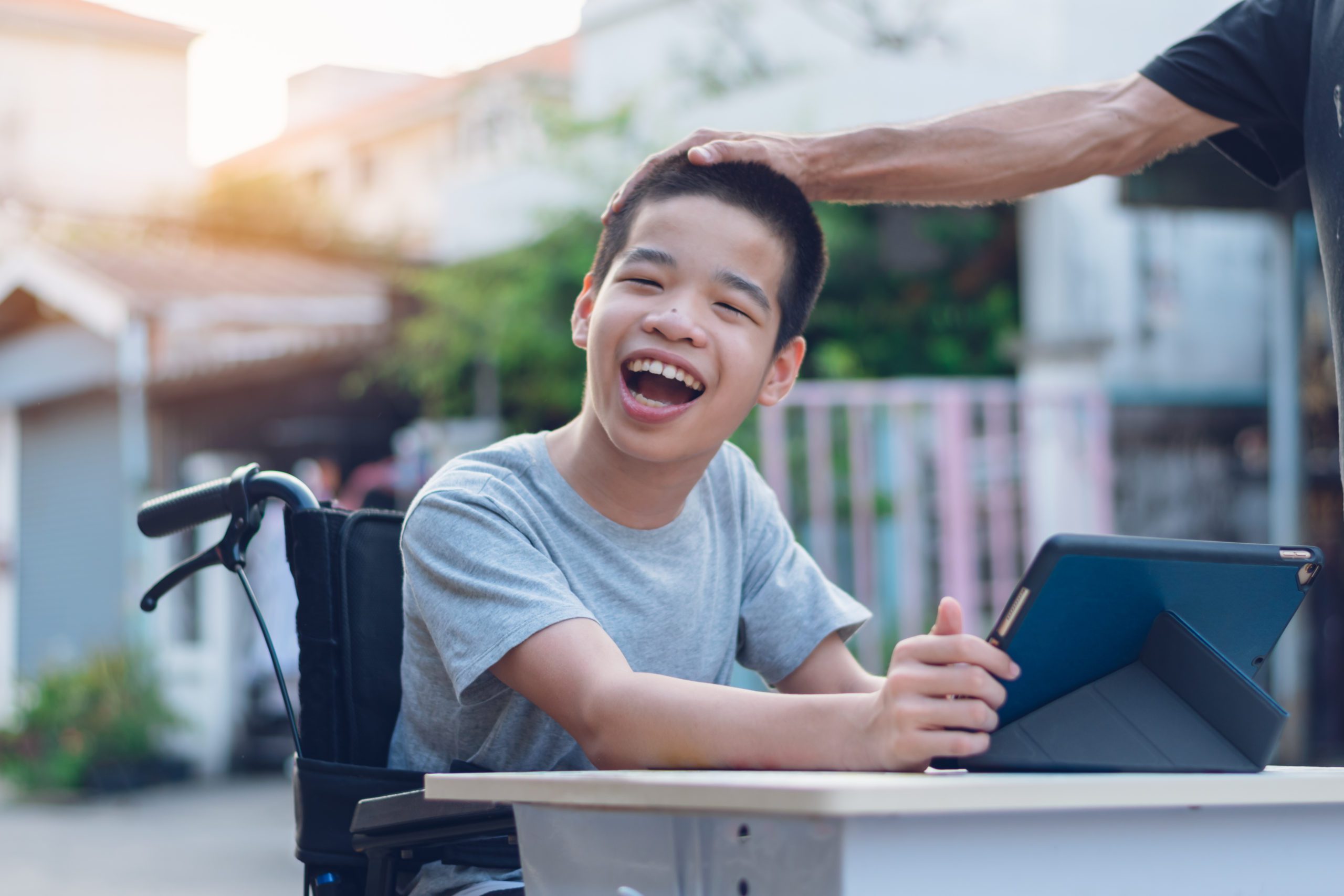
In many American kids, mental and developmental disabilities are at their peak when a kid is growing. In 2002, 7% of American children were reported to have disabilities. In central Asian and European regions children having any kind of disability are vulnerable to many kinds of stigmas and discriminations, and they are often separated. It’s estimated that about 5.1 million children with any disability remain scarce. They face many kinds of rights violations such as lack of early diagnosis of their disabilities to exclusion from education and community participation. This kind of kid requires more attention and specific necessities as compared to normal kids.
Disability can be mental, physical, or psychological. A kid with a disability is unable to perform certain kinds of functions. About 1 in 50 children are disabled. Disability can occur at birth, after the birth, or maybe caused as a result of an injury. Common disabilities such as Down syndrome, autism, and other intellectual and physical disabilities create challenges with the development of behavior, intelligence, and skill. Some common disabilities are.
Autism
Autism refers to a wide range of conditions and is characterized by challenges in communication, speech, social skills, and repetitive behavior. CDC (centre of disease control) says that 1 in 54 children in the United States is affected by autism. Kids with autism cannot communicate properly and are unable to express themselves. Autism has several subtypes and all of them are affected by genetic and environmental factors. Signs of autism usually appear by the age of 2 or 3 years. If someone is having conditions like gastrointestinal disorders, seizures, anxiety, and depression, then the person is more exposed to autism. It is also known as ASD (Autism spectrum disorder).
Cerebral palsy
This is a group of disorders that affects a person’s ability to move, maintain balance and posture. In childhood, this is the most common motor disability. The situation is caused by abnormal brain development and damage to the brain, so in this situation, a person has less control over his muscles. The symptoms vary from person to person. A person affected by Cerebral palsy needs special equipment to walk or may not be able to walk all his life. In addition to this, they may have seizures, problems with vision or speech, changes in spine and contractures.
Down syndrome
This is a condition in which a person has an extra chromosome. It is also referred to as trisomy 21. This extra chromosome changes the development of the baby’s brain and body. And these changes then lead to different physical and mental challenges for the baby. The people affected have a low IQ level, speak slowly, have flattened faces especially the nose, short neck, and a protruding tongue. Each year about 6000 babies in the United States are born with this complication so simply this means that it occurs in 1 out of 700 children.
Fetal Alcohol Spectrum Disorders (FASD)
This refers to conditions that occur in a person whose mother used alcohol during pregnancy. The condition can affect physical, learning, and behavioral activities. A person with Fetal Alcohol Spectrum disorder can have low body weight, poor coordination, poor memory, hyperactive behavior, vision or hearing problems, and problems with heart, kidney, or bones.
Special needs for kids
Approximately 18.5% of children in America under 18 years are special needs children. This does not mean that they are not intelligent or unable to accomplish any task, but it means that they have some special challenges that normal children do not face. The special needs in children can be physical, such as epilepsy, multiple sclerosis, and chronic asthma, or developmental such as dyslexia and processing disorders. The needs can be behavioral such as ADD and bi-polar or sensory impaired need, and in this case, the person can be blind, or deaf.
Play with them
Like all other kids, children with disabilities enjoy being played with. They enjoy it if you show them pictures, do reading with them, tickle them or hug them. Every time you do these things, the kids will get happy and respond to you with laughter and a smile. If they don’t like playing a particular game, then they will tell you. And they will stop smiling then, so you have to find something that catches their attention and interest. You can play cards, solve puzzles, paint together, listen to music and tell stories to each other. If parents are busy with their jobs and can’t take out time to play, then siblings should play this role. Special needs children feel really good to have siblings around them.
Care
Special needs children need more care and attention as compared to normal kids. It is preferred that the care of special needs children should be taken by the family members. Parents should play a role to look after such kids, and if they are busy or unavailable then, the older siblings should do this duty. Sometimes it’s not that easy for all the family members to perform this job and in some cases, the siblings are not willing to do this. So, it’s good to divide the work among all so that no one gets overloaded. If this option does not suit you favorable then it’s better to get a responsible nurse or a caretaker for your kid who would supervise his activities and assist him in doing his routine tasks
Important things to consider
If you are a parent or a sibling of a special needs child, then try to engage him in various activities. Do not allow him to just sit in the room. Take him out and take him to gatherings and allow him to meet with people. This will help him to learn things easily and gain confidence. Make sure to involve your kid in different kinds of physical activities such as playing football or tennis. If he has difficulty in movements then assist him in doing any other physical exercise to remain healthy. Try to take care of your kid and assist him in activities like writing, changing clothes, eating, and drinking. Communicate with your child with special needs and ask him questions, this will help you develop a friendly bond with him. Give him your time by doing different kinds of discussion that will make him feel valuable and he will feel comfortable in your company.







